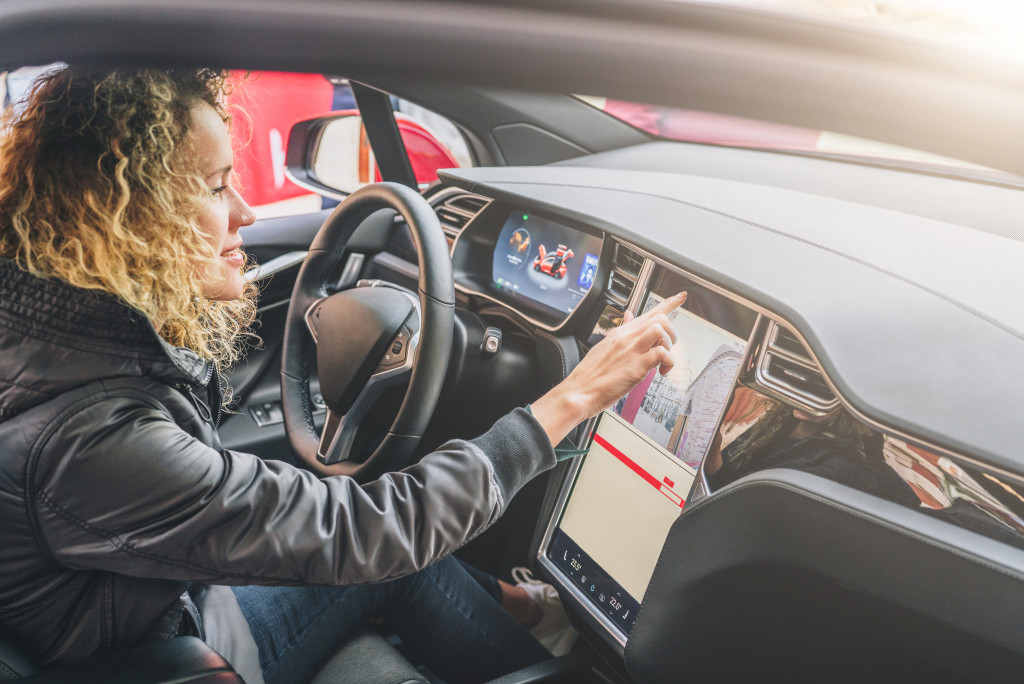- Automotive manufacturing rapidly evolves with new technologies and innovations, including robotics and automation, electric vehicles, and others.
- Electric Vehicle technology has improved significantly, with longer battery life and faster charging times for a sustainable mode of transportation.
- Cybersecurity is a priority for the automotive industry to protect customer data and prevent hacking of car systems.
- 3D printing allows for quickly designing complex shapes and components without compromising accuracy or quality.
- AI algorithms enable manufacturers to analyze data accurately while identifying trends that could help reduce costs.
The automotive manufacturing industry continuously evolves as it seeks to address new trends and consumer demands. Technological advancements such as 3D printing and AI-driven solutions have revolutionized manufacturing, making it more efficient, cost-effective, and environmentally sustainable. With the rise of electric vehicles and self-driving cars, the automotive industry is poised for a significant transformation in the coming years.
These developments are driven by the need to reduce carbon emissions, improve safety, and meet the changing preferences of consumers. As the industry continues pushing the boundaries of innovation, we expect to see more exciting changes.
This article will take a look at some top innovations in automotive manufacturing and what they mean for the future of the industry.
Robotics and Automation
One of the most popular innovations in automotive manufacturing is robotics and automation. This technology is being used to increase efficiency and accuracy on assembly lines all over the world.
Robots can operate quickly and accurately without taking breaks or needing rest, meaning that production times can be drastically reduced while still maintaining high levels of quality. Furthermore, robots can be programmed to perform specific tasks with precision, leading to higher levels of efficiency as well as fewer defects in products.
Electric Vehicles
Electric vehicles (EVs) have undoubtedly been a game-changer in the automotive industry. The push for more environmentally friendly modes of transportation has led to the rise of EVs powered by rechargeable batteries instead of gasoline. As more and more consumers become aware of the benefits of electric vehicles, the demand for them has skyrocketed. With zero emissions and lower operating costs than traditional gasoline-powered cars, EVs are a smart investment for anyone looking for a sustainable mode of transportation.
Moreover, manufacturers are constantly innovating and improving their products with the increasing demand for electric vehicles. From more extended battery life to faster charging times, there has been a significant improvement in EV technology. As the EV market continues to grow, so does the availability of pre-owned electric vehicles. This presents an excellent opportunity for those who are looking for a more affordable way to go green, with many dealerships offering for sale pre-owned trucks and other electric vehicles.

3D printing
Another popular innovation in automotive manufacturing is 3D printing. This technology allows engineers to quickly design complex shapes and components that were previously difficult or impossible to manufacture.
3D printing also makes it easier for companies to prototype their designs before committing them to total production runs, reducing costs and significantly speeding up product development cycles. Additionally, 3D printed parts are often lighter than traditional components due to their unique design patterns, further increasing fuel efficiency in vehicles using them.
AI-Driven Solutions
The final innovation we’ll touch on here is AI-driven solutions for manufacturers. Automakers around the world are using AI algorithms to improve everything from product design to supply chain management. AI algorithms can analyze large volumes of data quickly and accurately while identifying trends that might otherwise go unnoticed by humans.
This helps manufacturers identify potential problems early on and make changes before they become costly mistakes down the line. Moreover, AI-driven solutions can help reduce costs associated with labor by automating specific processes such as inventory management or quality assurance testing.

Cybersecurity
As cars become more connected and reliant on technology, ensuring their security and protecting customer data has become a top priority for the automotive industry. Cybersecurity has become a crucial aspect of automotive manufacturing, and companies are constantly looking for new ways to protect their products and customers from potential cyber-attacks.
Securing Connected Cars
As cars become more connected, the risk of cyber-attacks increases. Hackers can access a car’s systems and control various functions, from brakes to entertainment systems. To prevent this, manufacturers implement various security measures, such as firewalls, encryption, and intrusion detection systems.
Protecting Customer Data
With the increasing amount of data cars collect, protecting customer privacy has become a top concern. This includes not only personal information such as names and addresses but also driving habits and location data.
Preventing Hacking
Hackers can attempt to access a car’s systems in various ways, including through the car’s Wi-Fi, Bluetooth, or other wireless connections. Manufacturers are developing new ways to prevent hacking, such as strengthening firewalls and encryption and limiting access to certain functions and systems.
Securing Manufacturing Processes
Manufacturing processes themselves can also be vulnerable to cyber-attacks. This includes the design and development of cars and the production and supply chain. Manufacturers must ensure their systems are secure and employees are trained in cybersecurity best practices to prevent potential breaches.

The automotive industry is constantly innovating and evolving, driven by new technologies such as robotics and automation, 3D printing, AI-driven solutions, and cybersecurity. These innovations are helping to improve the quality of cars being produced while also making them more efficient, environmentally friendly, and secure.
By understanding these technological advances and their potential impact on the future of automotive manufacturing, companies can stay ahead of the competition in an ever-changing market. In order to remain successful in this rapidly developing field, manufacturers must be willing to invest in emerging technologies that will help ensure their products meet customer expectations for safety, reliability, and performance.




